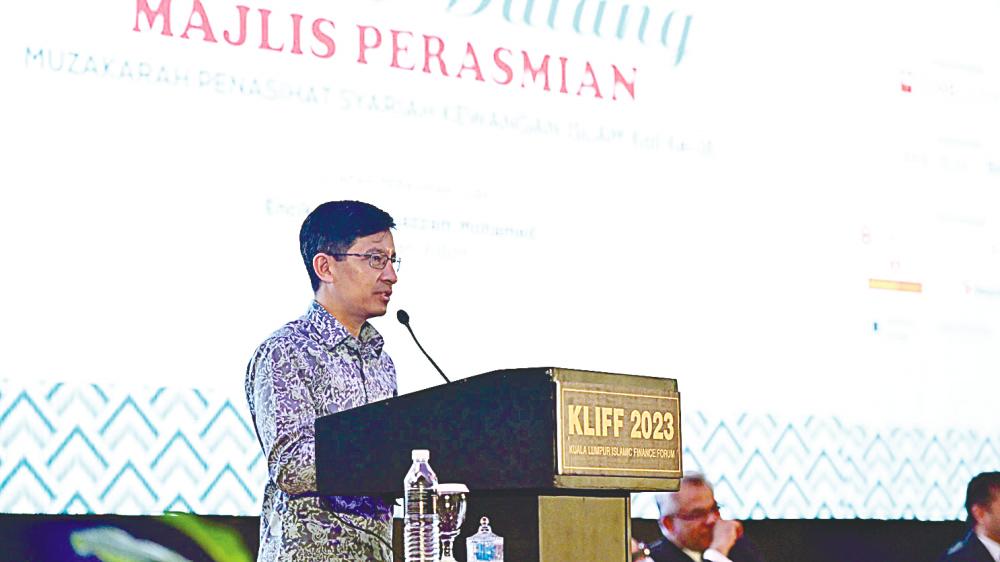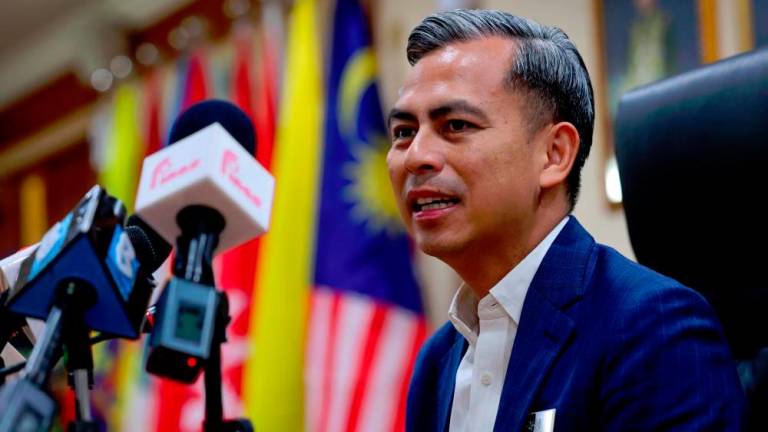KUALA LUMPUR: Malaysia continues to lead the world sukuk market, accounting for 45% of total issuance, as the country celebrates the 40th anniversary of Islamic banking this year.
Association of Islamic Banking and Financial Institutions Malaysia (AIBIM) president and Bank Islam Malaysia Bhd CEO Mohd Muazzam Mohamed (pix) stated that as of June 2023, the total outstanding Islamic government bonds (sukuk) amounted to RM561.8 billion.
“Semi-government sukuk issuance amounted to RM324.82 billion. As for corporate sukuk issuance, it was higher at RM367.44 billion.
“In terms of Islamic funds, Malaysia remains one of the top three countries in the world with more than 29% of total assets under management,” he said at the Kuala Lumpur Islamic Finance Forum (KLIFF) today.
He added that the performance of the Islamic capital market is a reason for the country to remain optimistic, especially as it navigates the path to economic recovery.
“This is crucial as there are long-term megatrends that are likely to reshape our global landscape, including increased efforts to address climate change and overall sustainability,” he said.
The Malaysia’s Islamic finance system, he added, has evolved into a global model of excellence, encompassing banking, capital markets, and sukuk, which plays a pivotal role in the nation’s economic development and sustainability.
“Malaysia’s robust Islamic finance system is not only focused on the banking industry. Apart from the establishment of Bank Islam Malaysia Bhd 40 years ago, Lembaga Tabung Haji was also established 60 years ago. Islamic finance in Malaysia has rapidly evolved into a model recognised by experts as the best in the world. Currently, Islamic banking contributes 44.5% (RM974.1 billion) of Islamic financing and Islamic capital market sectors, making up 64.3% or RM2.32 trillion of Malaysia’s total capital market,” said Mohd Muazzam.
The government, through Bank Negara Malaysia and the Securities Commission Malaysia, has taken steps to drive the development of the Islamic finance industry through instruments such as zakat and wakaf, Islamic banking systems, Islamic stock markets, and sukuk.
“All these efforts aim to make the Islamic finance system in Malaysia better and capable of maintaining Malaysia’s position as a global leader in Islamic business,” he remarked.
He also highlighted the unexplored areas such as wakaf-linked and environmental conservation Sustainable and Responsible Investment (SRI) sukuk, which can further develop a sustainable financial ecosystem in Malaysia.
“We have seen the launch of several SRI and Green Sukuk initiatives. SRI and the recently launched SRI sukuk framework support green and sustainable initiatives, accelerating the transition to a climate-resilient future. It is now up to the financial sector to take advantage of these initiatives through this framework,” he said.
Mohd Muazzam said that Islamic financial institutions are embracing cutting-edge technologies like artificial intelligence, blockchain, and IoT to improve efficiency and security.
“These initiatives, aligned with current digital technology, have the potential to reduce operational costs and enable financial institutions to provide innovative and secure solutions for diverse segments of the population and various businesses. Collaboration among the Islamic financial industry, Syariah scholars, and regulators is vital for mutual success in achieving syariah oversight and compliance in Islamic finance,” he added.










